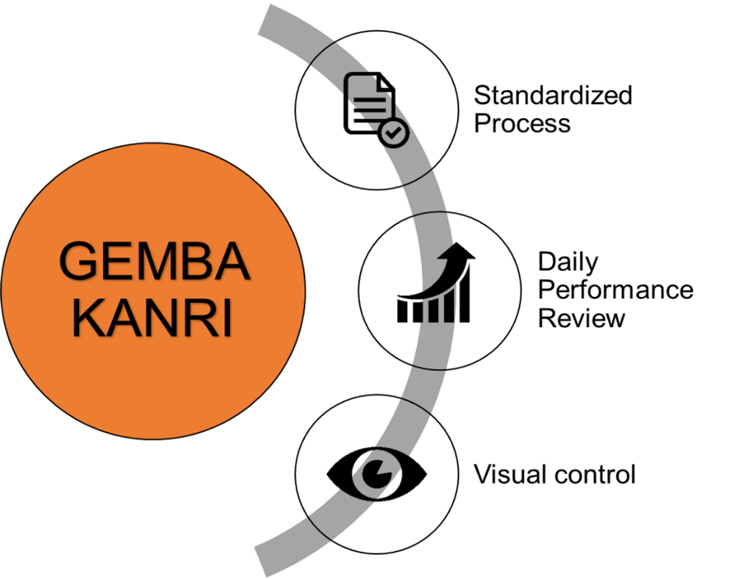Gemba (also spelt commonly as ‘Genba’) is a Japanese term.
However, when pronounced the Japanese n and ba sound together in english like an “m” and hence the english spelling of this term is defaulted as Gemba.
It translates as ‘gen’ meaning real and ‘ba’ from ‘bamen’ meaning place i.e. the actual spot or the precise location. In case of manufacturing company genba can be referred as place where value is created for the customer, i.e., the factory. Kanri means administration, control or management. Thus, usually translated as 'Workshop Management'.
In words Gemba Kanri can be explained as transfer of the principles of lean management directly to the shop floor level. It is an approach by which standards for running the day-to-day processes of an organization, at the Labour, Machine, Materials and Surrounding Environment level are established, maintained, controlled and improved. Therefore, Genba Kanri is an employee-oriented form of administration.
Benefits of Gemba Kanri
It integrates and aligns the many approaches used in shop-floor management. The main purpose of this type of employee-oriented approach is to empower employees to take responsibility and motivate them to perform to the best of their capabilities. This provides a chance for all the employees to get involved in the development of new processes and training for them accordingly which is overseen by the managers. This results in the development of the employee’s personality. Through the establishment of this type of common values, all become committed and empowered to implement change.
Genba Kanri also helps to improve quality, reduce costs, lower inventory and lead times, and achieve delivery requirements with the help of inter-relationship of different tools and techniques for effective management of people, products, and processes. This improves the chances of an organization in today’s competitive market.
Gemba walk
The ‘Gemba Walk’ is a concept developed by Taiichi Ohno. It was applied by the company Toyota. Organizations understand that the commitment and actions of leaders influence an entire operation. Thus, to explore the workplace and gain first-hand insight the company developed the Gemba Walk. It gives management the chance to visit the workshop and see how an operation is done. This task can be performed with help of the tool, ‘Gemba Walk Checklist’. This helps management determine if work processes are performed according to standards and come up with ways to improve them if possible.



